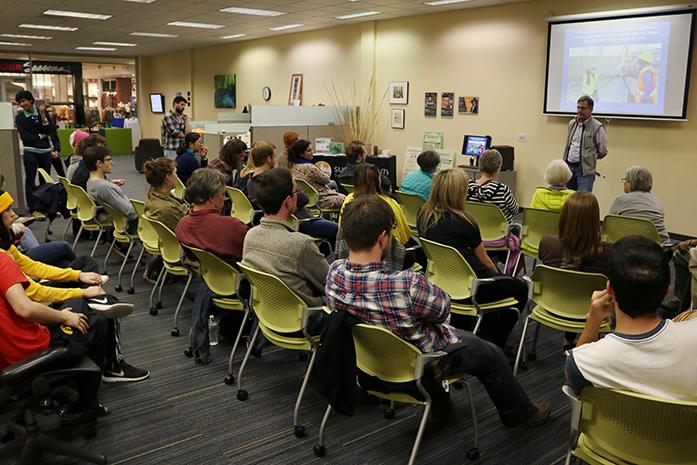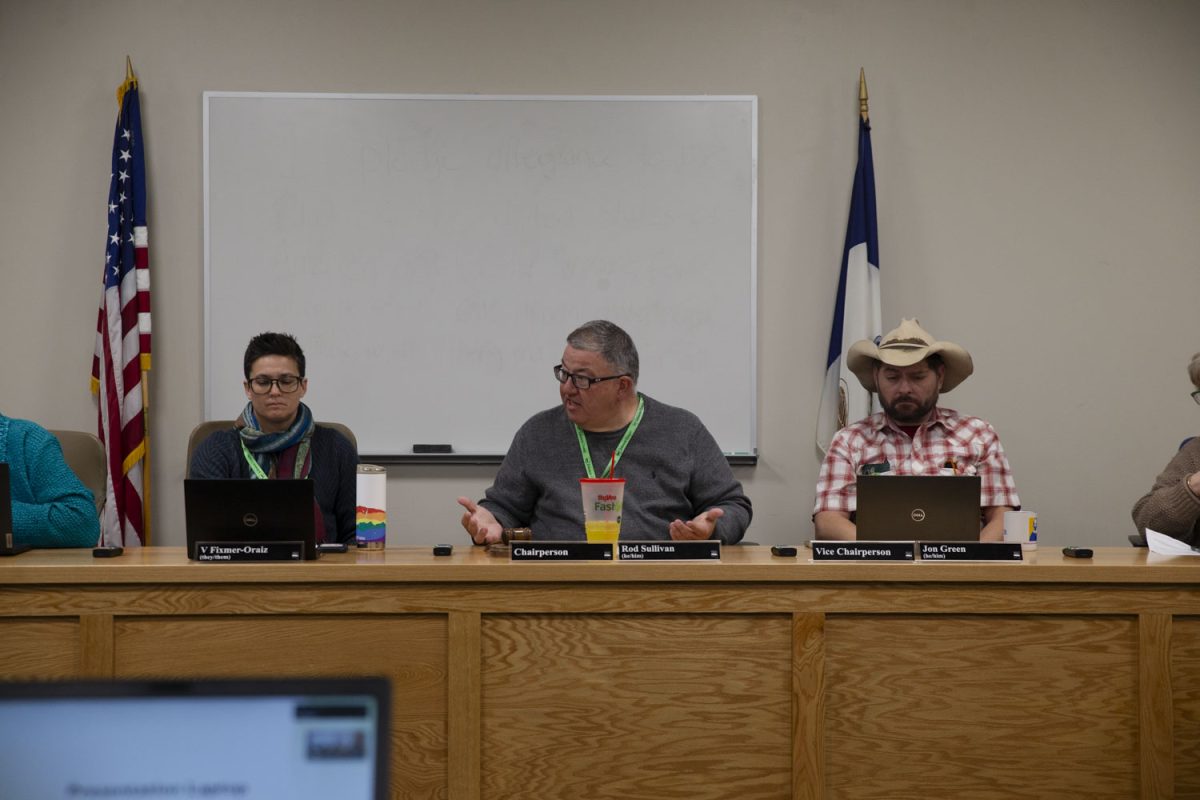The University of Iowa Environmental Initiative hosted a talk Thursday in the Sustainability Office, where UI Associate Professor Tyler Priest spoke about the Dakota Access Pipeline.
By Molly Hunter
Although controversy currently surrounds the construction of the Dakota Access Pipeline nationwide, one local expert says the pipeline is still the “best option” available.
Iowa City residents, environmental activists, and University of Iowa students met Thursday evening to discuss the pipeline.
According to UI Associate Professor of history and geography Tyler Priest, the goal of the evening was not to persuade people to either support or oppose the pipeline.
“I just want to lay out the issues, the facts, the arguments, as fairly as I can to all sides,” he said.
UI senior Brad Pector emphasized the need to lessen the demand for oil.
“We have sustainability technology ready to be put in place, really at any moment,” he said. “It just takes the right kind of investment.”
Pector’s views on the pipeline reflect his belief that U.S. oil consumption is too high.
“I don’t think [the pipeline] should be put in place,” he said. “Almost all pipelines break … and sometimes it’s small, but sometimes it’s catastrophic. When you’re putting a pipeline under the largest river in the United States, it’s not really something you can take lightly.”
Priest pointed out that the pipeline is not the first crude oil pipeline to cross the Mississippi or Missouri Rivers. He did not, however, dispute the increasing frequency of oil spills.
“There has been an increase in spills,” he said. “But there’s also been an increase in oil production and shipment in this country. But still, 99.99 percent of oil arrives at its destination without incident. And the trend in spills is that large spills over 500 barrels … have been going down. The spills under five barrels have been going up.”
This, Priest said, is due to aging pipelines, some of which are 50 years old or older.
“They’re not risk-free,” he said. “They can leak, they can rupture, they can spill.”
While Pector said he feels that the community should stop investing in crude oil altogether, Priest believes this is not pragmatic. He believes that, while there are risks to building crude oil pipelines, they are the best option currently available.
“Most of the oil from the Bakken is now transported by rail. And there’s been some really spectacular rail accidents with Bakken crude oil,” Priest said. “Pipelines are the safest way to transport crude oil — they’re the cheapest and safest per barrel of oil shipped.”
And, Priest said, it is especially important that Bakken crude oil be transported in this manner because it is very difficult to clean up.
“Bakken crude oil very light, sweet, very valuable — but also very volatile,” he said.
Priest also spoke about Native American protests against the construction of the pipeline and the history surrounding those demonstrations.
“The federal government’s role really is limited to the U.S. Army Corps of Engineers, which is responsible for managing the navigable waterways in the United States,” Priest said. “… And that’s really what the issue is with the Standing Rock Tribe.”
Christine Nobiss, an Iowa City resident and member of George-Cordon Plains Cree/Salteaux First Nation in Saskatchewan, acknowledged the mistrust between the indigenous community and the Corps of Engineers.
“[The 20th century] was rife with a lot of dam-building,” Nobiss said. “There’s a book on it, and the Army Corps and its dealings with the Nations. And there’s a lot of bad history there.”
During his talk, Priest also noted that the pipeline was originally meant to run through the nearby town of Bismarck.
“They didn’t go through Bismarck because it’s a white town,” Nobiss said. “They went next to the reservation, because that’s what always happens.”
Nobiss said she is doing her best to advocate for the rights of indigenous people.
“We’re trying to coalesce the native voice here,” she said. “The indigenous voice in Iowa needs to be heard about this pipeline because there are sacred sites here, too.”
Above all, Nobiss said, “the reason I fight so hard in Iowa to have the indigenous voice heard here is because these libertarians and these farmers and all these people, when they speak about losing their land I feel for them, and I stand by them, and I want to help them. At the same time, I want to remind them … your land rests on the bones of our ancestors.”







